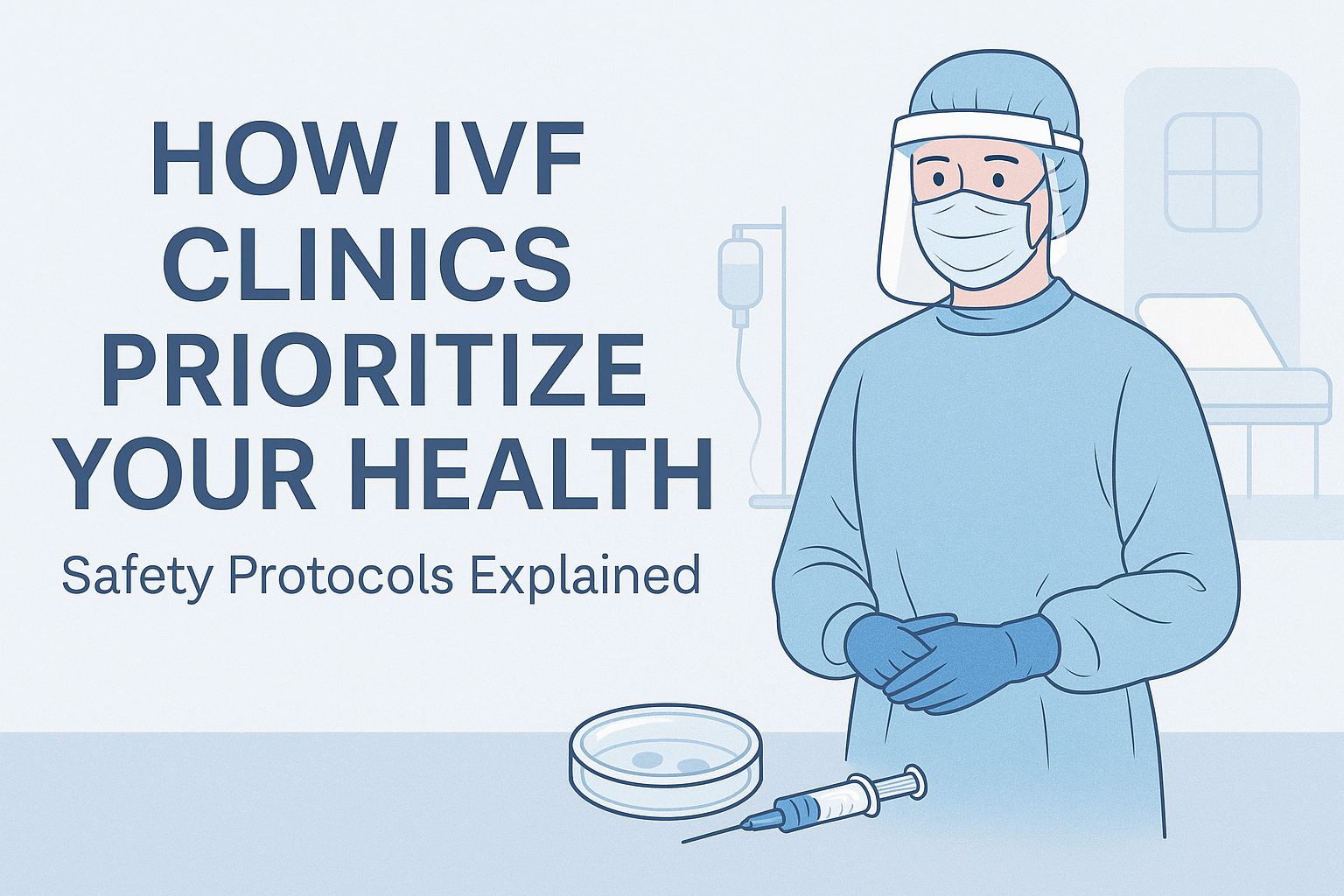
In vitro fertilization (IVF) is a remarkable medical innovation that has helped countless families achieve their dreams of parenthood. Behind every successful IVF journey lies a rigorous set of safety measures designed to put patient health first. From the moment you enter the clinic to the careful handling of embryos in the laboratory, IVF centers follow stringent protocols to ensure every step is performed under the highest standards of care.
1. Rigorous Patient Screening and Assessment
Before any treatment begins, IVF clinics perform comprehensive assessments of each patient’s medical history, current health status, and lifestyle factors. This includes:
- Complete Physical Examination: Ensuring patients are in good general health and identifying any conditions that could compromise outcomes.
- Infectious Disease Testing: Screening for viruses (e.g., HIV, hepatitis B/C) and other contagious conditions to protect both patients and clinic staff.
- Genetic Counseling and Testing: Offering carrier screening and karyotyping when indicated, helping to identify hereditary conditions and tailor treatment plans accordingly.
By thoroughly evaluating health risks upfront, clinics minimize complications and tailor protocols to each individual’s needs.
2. Strict Sterilization and Disinfection Practices
Maintaining a sterile environment is paramount in any medical facility, but IVF labs go a step further:
- Dedicated Clean Rooms: IVF procedures are conducted in rooms with controlled air flow and filtration systems that reduce airborne contaminants.
- Regular Equipment Sterilization: All instruments—needles, catheters, pipettes—are sterilized according to validated protocols between each use.
- Surface Disinfection: Treatment areas and laboratory benches are disinfected multiple times per day with hospital-grade agents to eliminate microbial threats.
These layers of sanitation protect against infection and ensure the integrity of each reproductive sample.
3. Personal Protective Equipment (PPE) and Staff Training
Clinic personnel are the frontline guardians of patient safety:
- Mandatory PPE Usage: Doctors, nurses, and embryologists wear gloves, masks, gowns, and hair covers during all procedures to prevent cross-contamination.
- Ongoing Staff Education: Regular training sessions keep teams up to date on best practices for aseptic technique, emergency response, and patient privacy.
- Competency Assessments: Periodic evaluations ensure that every team member performs procedures accurately and safely.
Empowering staff through training and protective gear reduces procedural errors and maintains a high standard of care.
4. Advanced Laboratory Quality Control
The IVF laboratory is where eggs and sperm unite—and where safety is non-negotiable:
- Temperature and pH Monitoring: Incubators maintain constant 37°C and precise pH levels, safeguarding embryo development.
- Culture Media Validation: Each batch of culture media undergoes sterility testing and performance checks to confirm suitability for embryo culture.
- Cryopreservation Protocols: Vitrification systems cool embryos at controlled rates, with backup alarms and generators in place to prevent temperature excursions.
Through meticulous quality control, labs create a nurturing environment that mimics natural conditions as closely as possible.
5. Infection Prevention and Patient Flow Management
Preventing the spread of infections—especially respiratory viruses—remains a key concern:
- Appointment Scheduling: Staggered timing reduces patient overlap in waiting areas, minimizing contact.
- Health Screening at Entry: Temperature checks and symptom questionnaires help identify potential risks before patients enter treatment zones.
- Telehealth Options: Whenever feasible, consultations and follow‑up visits are conducted virtually to limit unnecessary clinic visits.
These measures keep both patients and staff safer during peak flu seasons and public health outbreaks.
6. Emergency Preparedness and Patient Support
Life is unpredictable, so IVF clinics are equipped to handle unexpected developments:
- Emergency Response Plans: From allergic reactions to power outages, clinics have protocols, dedicated first‑aid staff, and backup generators in place.
- Patient Education: Clear instructions about medication administration, recognizing warning signs, and whom to contact in a crisis empower patients to stay safe at home.
- Emotional Support Services: Counseling and support groups help patients manage the stress and emotional ups and downs of treatment.
Being prepared for emergencies—and offering compassionate support—ensures a smoother journey from consultation to embryo transfer.
7. Continuous Monitoring and Post‑Procedure Care
Your safety doesn’t end once the procedure is over:
- Regular Follow‑Ups: Blood tests and ultrasounds track hormonal levels and endometrial thickness, detecting any complications early.
- Infection Surveillance: Patients are advised on hygiene post-procedure, and any signs of infection are treated promptly.
- Outcome Analysis: Clinics routinely review success rates and adverse events to refine protocols and offer ever-safer care.
Ongoing monitoring helps clinics learn and evolve, translating each cycle’s insights into better safety for future patients.
Conclusion
IVF clinics weave together advanced technology, rigorous protocols, and compassionate care to make patient safety the cornerstone of every treatment. From initial screening to post‑transfer follow‑up, every step is designed to minimize risks and maximize the chance of success. As you embark on your IVF journey, know that these safety measures are in place to protect your health—because at the heart of every clinic is a commitment to helping you achieve parenthood with the utmost care and professionalism.
